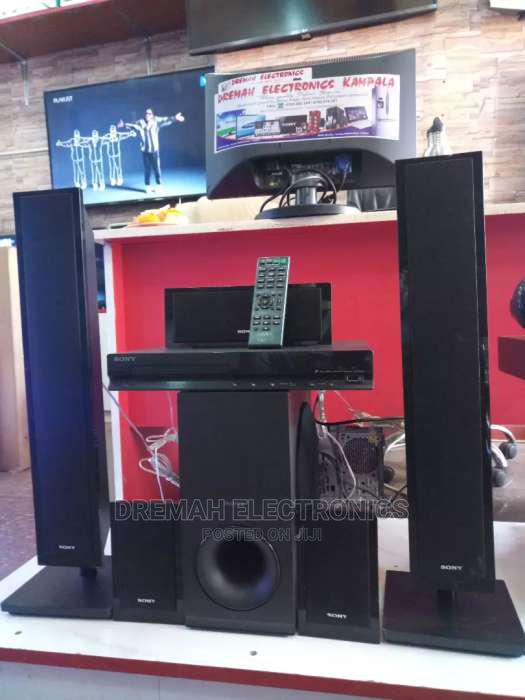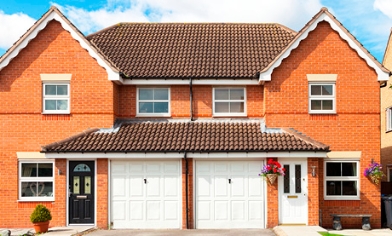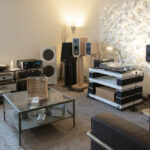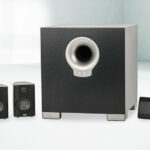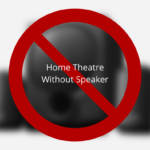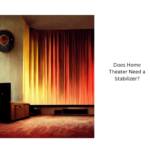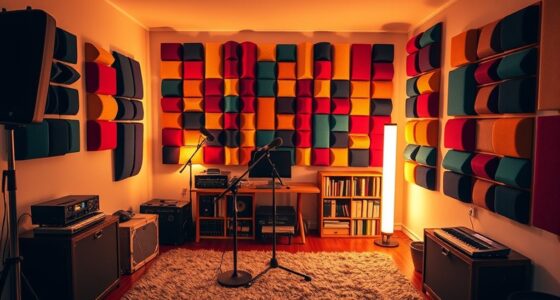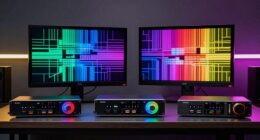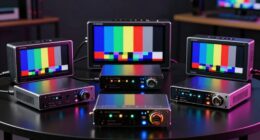
When it comes to home theater systems, a few hundred watts per channel should suffice for most households. Properly setting up your home theater system can enhance your entertainment experience significantly. However, if you live in a rental or apartment, you may be limited in how loud you can turn up the volume. In such cases, it may be wise to consider a smaller system with lower wattage.
Speaker power
To determine the power needed, read the speaker specifications. You will need an amplifier that is capable of driving the speakers you choose. A small amplifier is not sufficient because it will clip the speaker or fry the tweeter. It is better to match the amplifier and speakers to achieve maximum sound quality. You should always check the RMS (average power) and peak (peak) power of your amplifier.
The power needed for speakers is often specified in decibels or watts. Decibels refer to the volume of sound that the speakers can handle. In most cases, you’ll be listening to media at an average level, which is usually around 85 decibels. However, you may need a higher wattage if you plan to listen at higher volumes.
Another important factor when deciding on speaker power is the impedance. If your speakers have a 6-ohm impedance, you should choose an amplifier that supports that impedance. For example, an amplifier with a 100-watt RMS power will not be sufficient for speakers with 6-ohm impedance.
Before you begin looking for a home theater speaker, determine your specific needs. Are you trying to play music loud enough to make a statement in a room? Or do you want to play music loud enough to annoy your neighbors? These questions are important when choosing a speaker, as too much power can damage speakers.
Generally, 64 watts of speaker power is sufficient for a main-channel audio system. Remember, however, that a speaker’s SPL should be at least 76 dB without distortion.
Speaker size
If you want to enjoy the theater experience in your home, you need powerful sound channels. A home theater amplifier should be able to deliver a power of one hundred watts per channel. This will ensure that your audio system is powerful enough to deliver sound without clipping your tweeter. A good home theater amplifier should also have the power rating that matches the impedance of your loudspeakers.
The sound pressure level (SPL) of speakers is usually measured in decibels. The decibel level is a logarithmic scale, which means that 60dB SPL is not twice as loud as thirty dB SPL. In fact, a higher SPL requires more sensitivity than lower SPL.
The loudness of your speakers is another important factor to consider when deciding how many watts you need for your system. Loud volume can damage speakers and lead to poor sound quality. Because of this, modern home theater receivers and amplifiers come with volume controls and other features that can limit how loud they can get. Additionally, speakers come with different minimum impedance ratings. Speakers with a lower minimum impedance will require less power, which is especially important when playing music at higher volumes.
The amount of Watts needed for your speakers depends on the type of music you listen to. For example, if you are listening to rap, rock, or reggae, you’ll need more power. In general, 125 watts of power per channel should be sufficient for an eighteen by eighteen-foot room.
Ultimately, the power required for your home theater depends on the number of components and their power consumption. If you’re using shared outlets, you may want to consider dedicated 120V/20A lines.
Speaker type
There are many factors to consider when choosing a home theater system, including power consumption and the type of music you plan to play. In general, a room with an average sized seating capacity will require an amplifier that produces about 50 watts per channel. If you plan to play loud uncompressed music, you may want to choose a higher wattage amplifier. However, if you plan to listen to light classical music, a lower wattage amplifier will be sufficient.
In general, higher-wattage speakers require less power, which means that they can be a better choice for home theaters. Typically, home theatre speakers are 90dB or better. One watt can produce 95dB of sound, which is nearly four times more than the volume of the same music at a rock concert. However, most music is not played constantly at such high volumes and many soft passages fall below 90dB.
Another important factor to consider is peak power. For example, if you plan to play rock music, you will need about 80 watts of power per channel. However, if you are playing live music, you may need more than 100 watts per channel.
Decibels are another factor to consider when selecting speakers for your home theater. Depending on the speaker’s sensitivity, one Watt of power will produce 90dB of sound. By comparison, a thirty-dB SPL is equivalent to about half the volume of a sixty-dB speaker.
Speaker wattage
When choosing a speaker for your home theater, it’s essential to know the wattage of each model. This figure will determine the maximum volume that a speaker can produce with a given power rating. Typically, speakers in home theater systems are more than 90dB efficient, which means that they can produce a high volume at a lower volume. The term watt is also used in audiophile circles to refer to the energy that a speaker can produce.
While more powerful speakers are better for larger rooms, smaller speakers may provide better sound quality. However, these smaller speakers will cost more than their larger counterparts. This is because these speakers are often designed with high-quality amplifiers. The wattage will also depend on the type of porting or sealed enclosure.
Regardless of whether you are listening to music, movies, or games, an adequate amount of power is crucial. The wrong amount of power can clip or fry the tweeter. Speakers should be paired with the right amplifiers for maximum sound quality. The right amount of power will depend on your listening habits and the efficiency of your speakers. For example, you might need a system with 200 watts for loud uncompressed music, but if you’re only listening to light classical music, 50 Watts will be fine.
Speaker wattage for home theater systems should be determined carefully. Peak power is what an amplifier can deliver in short bursts. Very good speakers are usually much more sensitive than mid-quality speakers. The mid-range speakers need more power to deliver the same volume. Usually, peak values range between 85 and 91 dB. Lower dB speakers don’t sound as good.
